'I was a heroin addict - but ended up guarding Buckingham Palace'
- Published
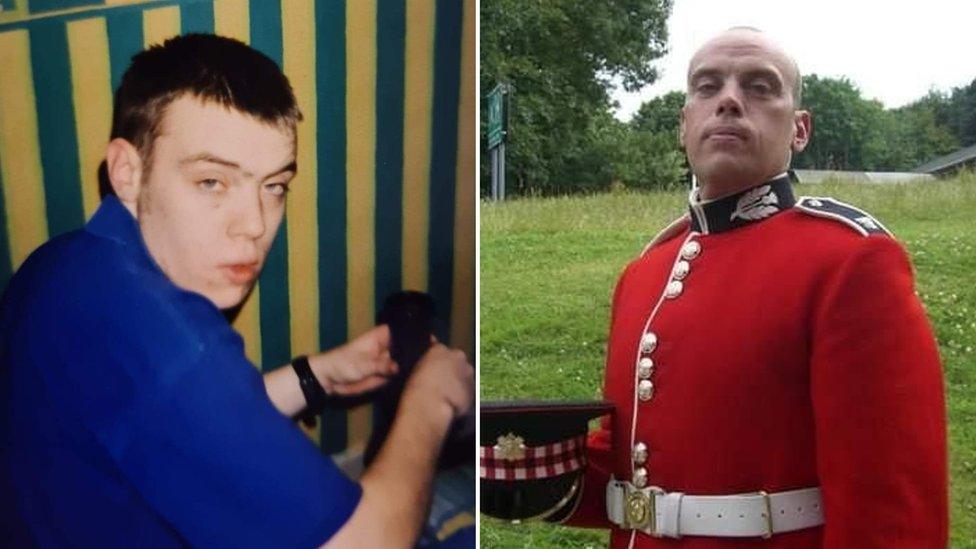
Paul Boggie was a heroin addict (L) for many years before he turned his life round and joined the Scots Guards (R)
Paul Boggie admits he had given up on life after years as a heroin addict. But after turning his life around, he joined the Army and found himself standing guard at Buckingham Palace.
Paul started smoking heroin at the age of 18 when it arrived in the Craigentinny estate where he lived in Edinburgh.
He had been upset after falling out with his friends, so when one of them offered him the chance to take the drug with them he agreed to join in.
"They were all crammed into this wee Fiesta and I saw the flash of the tin foil but I didn't know what it was," he recalls.
"One of them came out and told me they were chasing the dragon, there were no needles or spoons or belts.
"When I got into the car it smelt horrific, like rotten fish - that's what heroin smoke smells like."
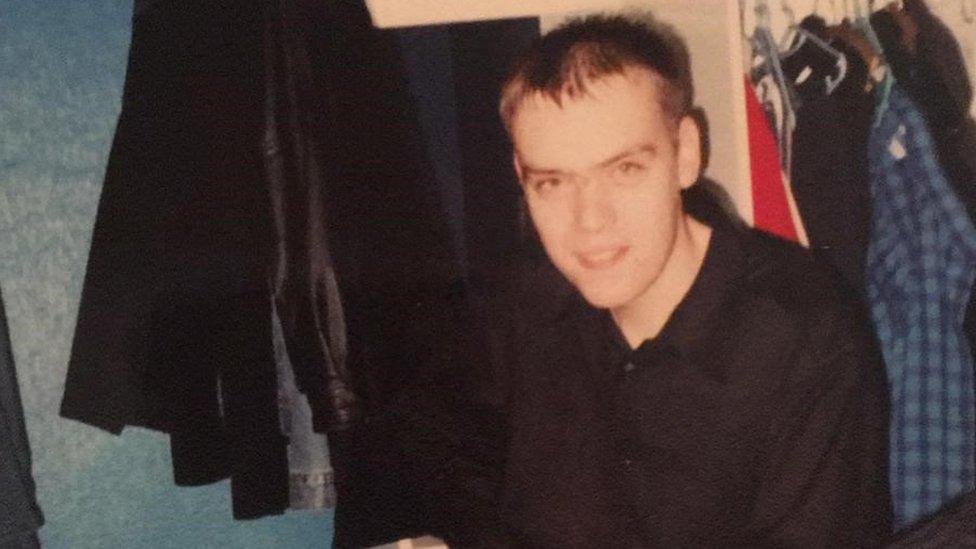
Paul Boggie started using heroin when he was 18 years old
He soon ran up a £16,000 debt after using his wage slips to take out loans.
Paul held down his office mail delivery job despite taking heroin every day - even in the toilets at work.
He said: "I could still function.
"I didn't look like a stereotypical heroin addict, it hadn't taken a toll on my body."
He was able to hide his drug use from his employer and his family. He passed off the tell-tale sign of red eyes as being caused by hay fever.
"I didn't think I was addicted, I didn't take it seriously," said Paul, who is now aged 42 and lives in Fife.
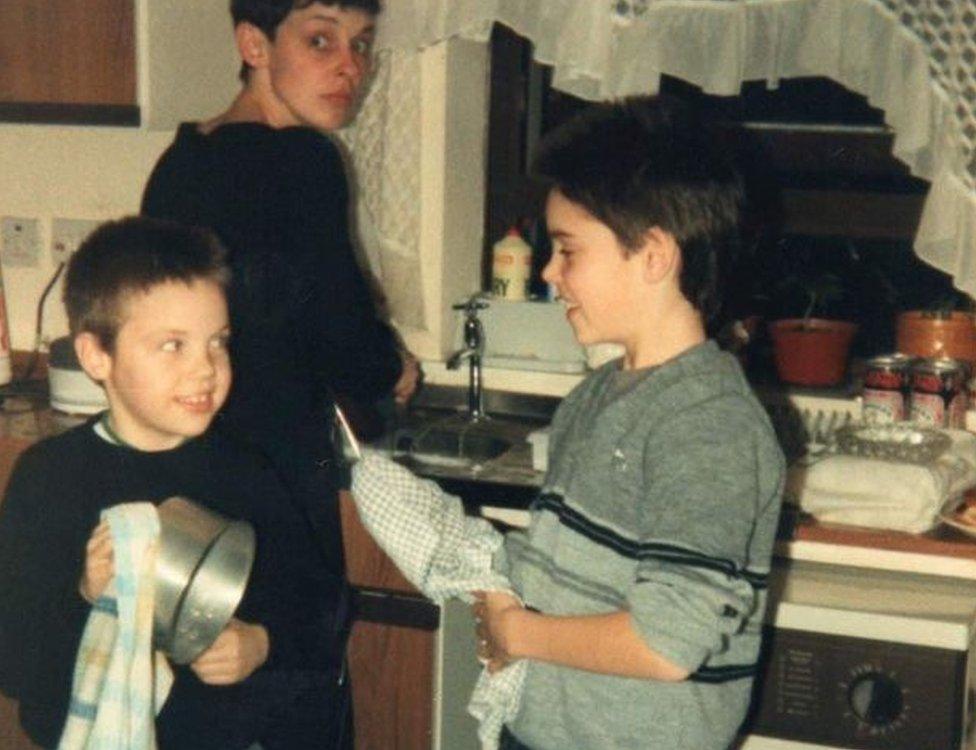
Paul Boggie (right) with one of his brothers and his mother
However, when a police drugs bust left him unable to buy heroin for eight hours he felt "horrific".
"I remember when I finally got that drug again I felt amazing, all the physical pain, shivering and nose and eyes running all went away.
"But then I thought: 'Oh no, I think I've just signed my death warrant'.
"It was the realisation that I was in so much danger because I loved heroin so much and I didn't want to feel cold turkey ever again. I remember thinking I must be addicted."
As the years went by the drug did start taking its toll.
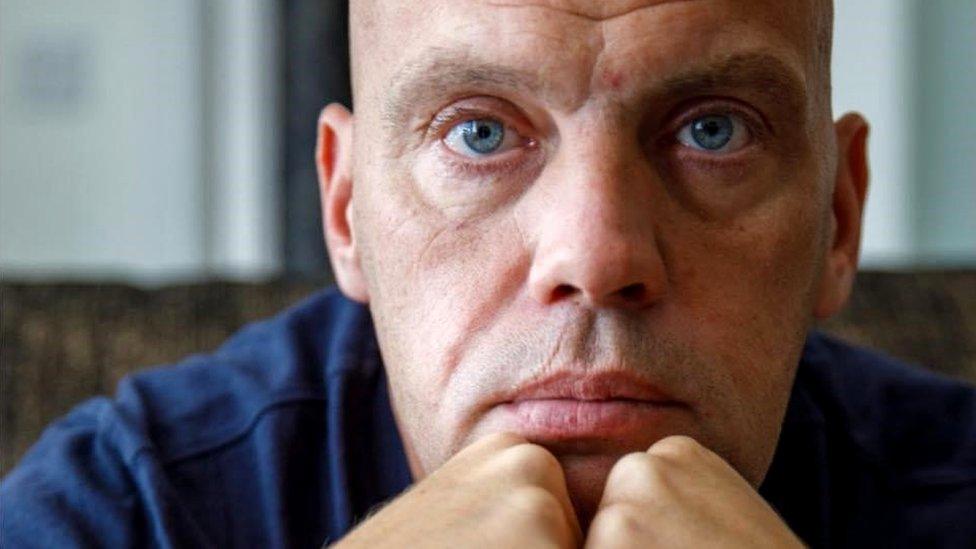
Paul Boggie said cold turkey is horrendous
Paul lost his job and started looking unwell. His moods were "all over the place" and people started noticing.
He dropped to eight stone, which was underweight for his 5ft 8in frame, and said he was "waiting to die".
"I gave up on life, I was only focused on getting heroin. I was wallowing in self-pity and heroin would take it all away.
"Luckily most of the time my parents let me stay at their house, but I have slept in stairwells.
"You don't feel the pain or the cold because you are happy wherever you are when you are on heroin."
Paul tried to come off heroin 13 times but relapsed every time - until he attended a course organised by the homeless charity Cyrenians.
"I had laid all of my drugs and heroin on the table alongside a milky tea I'd use to help swallow my tablets, but I walked past all of that, put my nose against the mirror in my room and just asked myself: 'What do you want?'
"I looked at myself and said: 'Don't ever ask for heroin again because you're not getting it' - and that was it."
He never took heroin again.
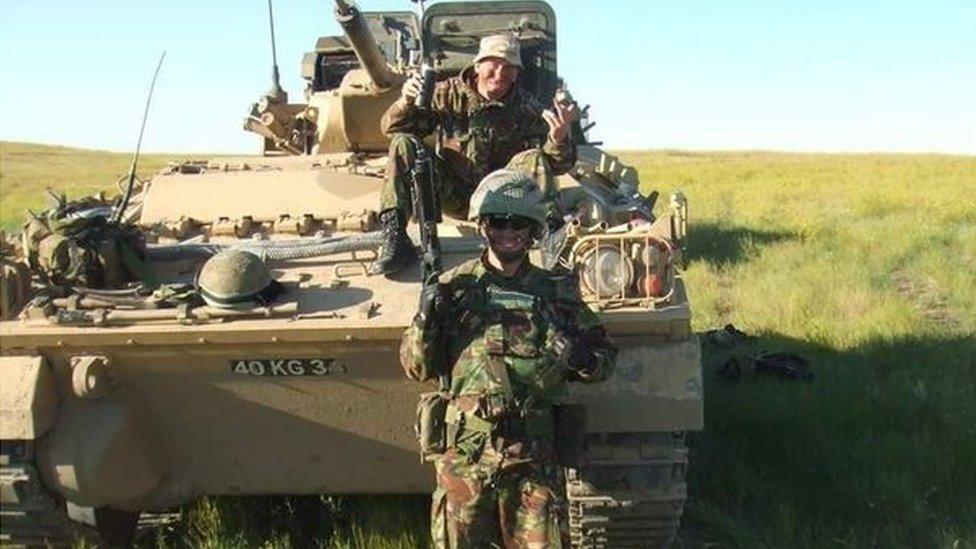
Paul trained for months ahead of a planned tour in Afghanistan
A few years later, after gaining weight and getting a job in Morrisons, he applied to join the Scots Guards at the age of 30.
Within six months of joining the Army he was on duty at Buckingham Palace.
"I had come off the drugs but still felt like there was something missing in my life," said Paul.
"When I joined the Scots Guards I felt so proud of what I had achieved.
"I remember thinking: 'Wow, a few years ago I was a heroin addict in Lochend and now I'm standing guard at the palace."
However, after five years in the Scots Guards he was being driven to a training camp in England ahead of an Afghan tour when the truck crashed and he broke his back.
He was medically discharged and given prescription painkillers for his crushed spine, but then became addicted to the medication.
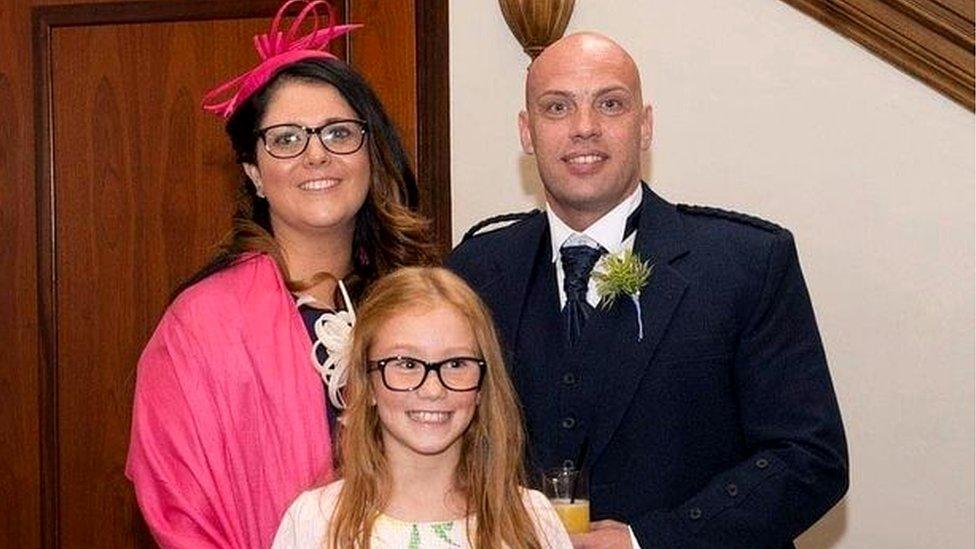
Paul now lives in Fife with his wife Stephanie and stepdaughter Cherise
He started writing a book where all proceeds go to the homeless, Heroin to Hero, in the first lockdown. It reminded him how he had come off heroin, which enabled him to finally stop taking the painkillers.
He said: "I just choose to live with the pain now rather than take the pills."
Now Paul is speaking in schools in a bid to highlight the dangers of addiction, as well as doing talks for inmates in prison, which he does for free.
He said: "Drugs are bad, but addiction is horrendous.
"It's difficult to break an addiction. You end up accepting your fate and you can end up dead like many of my friends."
The BBC Action Line has details of organisations offering information and support if you, or someone you know, has been affected by drug or other addiction issues.